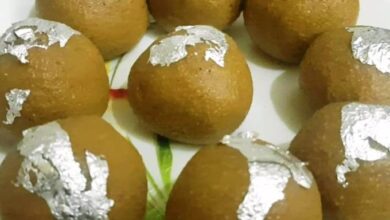Right food in winter for health and tone
Winter in our climate is a difficult time. Lack of fresh vegetables and fruits, lack of sunlight, a fast pace of life, and long New Year’s holidays in one way or another affect the state of the body.
In such conditions, it is very important to pay attention to your diet. To create a balanced diet with care for your health. It is no secret that it is with the onset of cold weather that the body begins to stock up on subcutaneous fat in order to keep warm. In addition, daily calorie consumption is reduced, walking is halved, and corporate events and weekends exacerbate the situation.
Many girls go on a diet before the holidays in order to fit in. That very dress and limit themselves to food afterward in order to relieve the effects of New Year’s feasts. Nevertheless, diets are different. Because strict dietary guidelines can harm the body even more than the abuse of Olivier with mayonnaise.
Let’s figure out how to eat in winter in order to maintain beauty, health and take care of the slimness of the figure.
What to eat in winter to stay in shape?
First of all, it is important to understand that you need to deal with your health, and not let problems take their course. And if you notice any alarming changes in your well-being, it is better to immediately consult a doctor.
Regular testing and selection of an individual nutritional system are mandatory if you are seriously involved in sports or follow a strict diet for weight loss. If you’re curious about the age of a person, you can easily calculate it by using an online age calculator.
Otherwise, you can follow the rules of a healthy diet and take as a basis the principles that will help you stay in good shape before, during, and after the New Year holidays.
So, here are some basic rules of a healthy diet that should not be neglected in the winter season:
- Remember to drink clean water. In the winter season, the feeling of thirst appears much less often than in the summer, but drinking 1.5 – 2 liters of still water a day is the norm. Which is the key to a healthy metabolism. Start your morning with a glass of warm water with a cut of lemon and a cut of fresh ginger. During the day, drink a glass of water every hour, set reminders on your phone, or download a special app so you don’t forget to drink.
- Replace fast carbohydrates with slow ones: instead of sweets, eat fruits, dried fruits, use honey, maple syrup, and stevia as sweeteners. In winter, you want to eat more and more often than in summer. Since the body spends more energy on heating the body. Cereals, durum pasta, and bran are full-fledged sources of energy. Ideal for a winter breakfast: oatmeal in the water with fruits and nuts. Or buckwheat porridge with poached egg, a slice of avocado, and a slice of salmon.
- Give up preservatives and sugar: ready-made food, convenience food, sweet soda. Those foods not only provoke rapid weight gain but generally have a negative effect on health. Bake vegetables in the oven with the addition of spices, lean on legumes, fresh herbs, nuts to prolong the feeling of fullness and nourish the body with missing micronutrients.
- Omega-3 is the basis of women’s beauty and health. It is the correct (unsaturated fats) that are necessary for the normal functioning of the reproductive system and the external condition of the skin, hair, and nails. Lay on salmon, river fish, seafood, nuts, almonds, and olive oil.
- Fresh vegetables and greens are a source of fiber, which is necessary for the proper functioning of the gastrointestinal tract. In addition, greens give a feeling of fullness without excess calories. And celery and cabbage are the main enemies of extra pounds. So a fresh salad for dinner with a drop of olive or flaxseed oil will not only not hurt the body. Yet will likewise be useful.
- Your muscles need protein, even if you are not a frequent visitor to the gym. The main sources of protein are lean meats, fish, chicken and quail eggs, cottage cheese up to 5%, kefir, natural yogurts without sweeteners, legumes, hard cheese, and, of course, nuts. Try to snack on almond nucleoli, and eat protein + fiber in the evening. The best dinner option looks like this: 250 g of protein (baked fish) + fiber (green salad).
Food that you should eat in winter
- How to eat in winter to make up for the lack of vitamins? Pay attention to what the inhabitants of the northern countries eat in addition to imported vegetables and fruits.
Firstly, summer supplies, and secondly, frozen berries. Blueberries, lingonberries, cloudberries, cranberries contain a huge amount of useful vitamins and minerals. Buy frozen berries, which can be added to cereals, casseroles, fruit salads, and smoothies.
- Vegetables and fruits that can and should be eaten in winter are usually called seasonal. First of all, these include citrus fruits: tangerines, oranges, grapefruits, lemons.
- One of the most useful fruits of the cold season is pomegranate. This also includes kiwi, bananas, and late apples.
- Don’t forget about dried fruits: dried apricots, dried figs, dates, and prunes can be healthy snacks between meals.
- Give preference to vegetables such as turnips, pumpkin, beets, celery, cabbage, lettuce. In winter, by the way, it is much easier to find more ripe avocados than in summer. The same goes for chickpeas, bean sprouts, wheat, green asparagus.
- For soups, you can use frozen vegetable mixes: broccoli, Brussels sprouts, beans.
- What should you eat in winter to strengthen your immune system?
- Ginger, of course! Thin slices of ginger can not only be added to water or tea but also used as a flavoring seasoning for salads, cream soups, baked vegetables, meat, and fish.
Do not forget about spices: black pepper, cloves, garlic, ground nutmeg will perfectly complement winter dishes.





